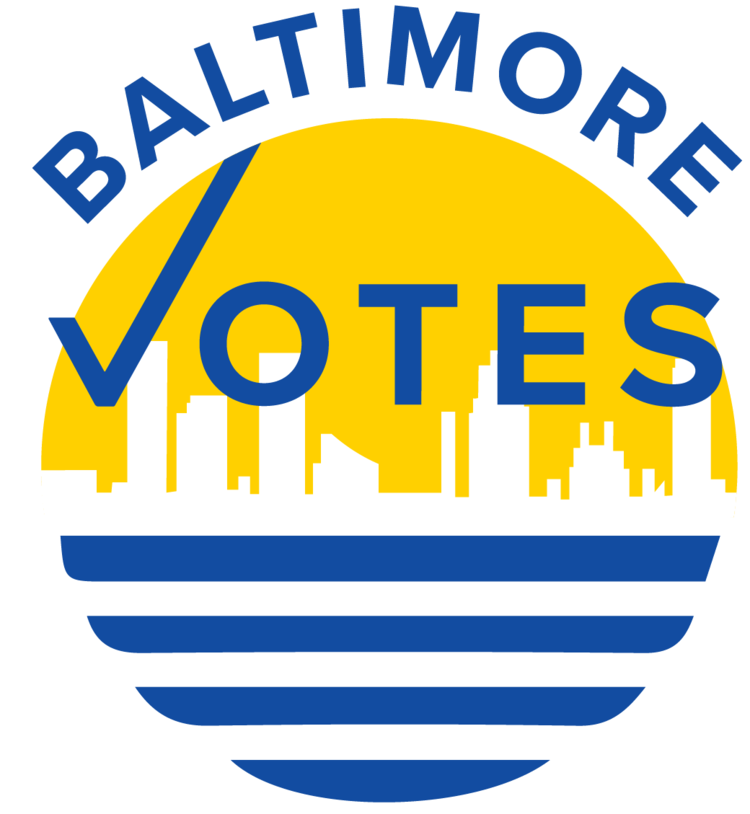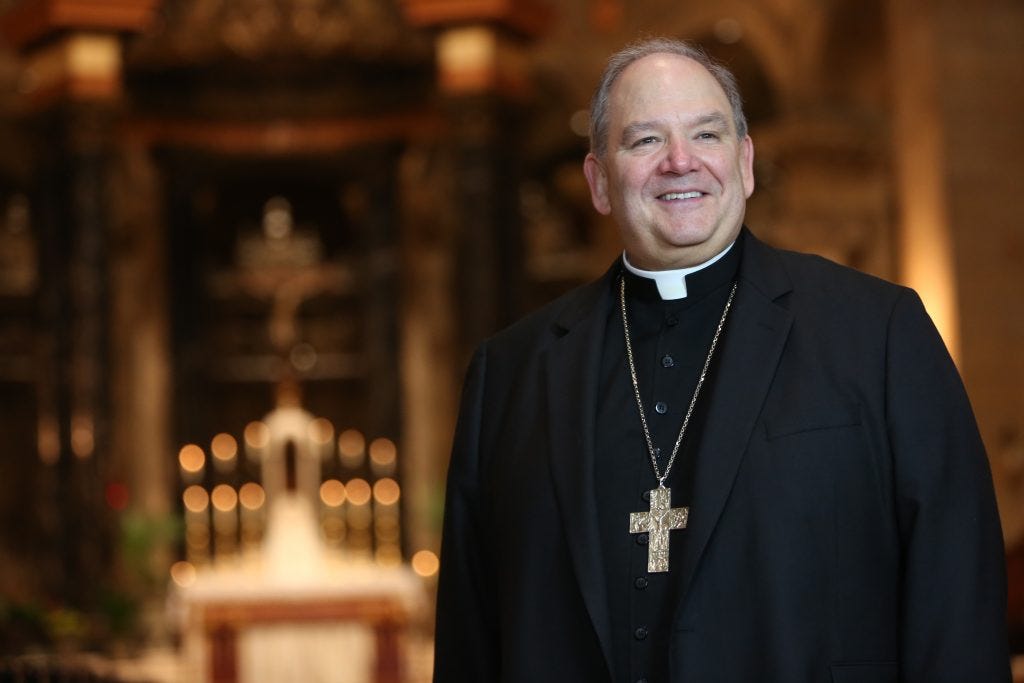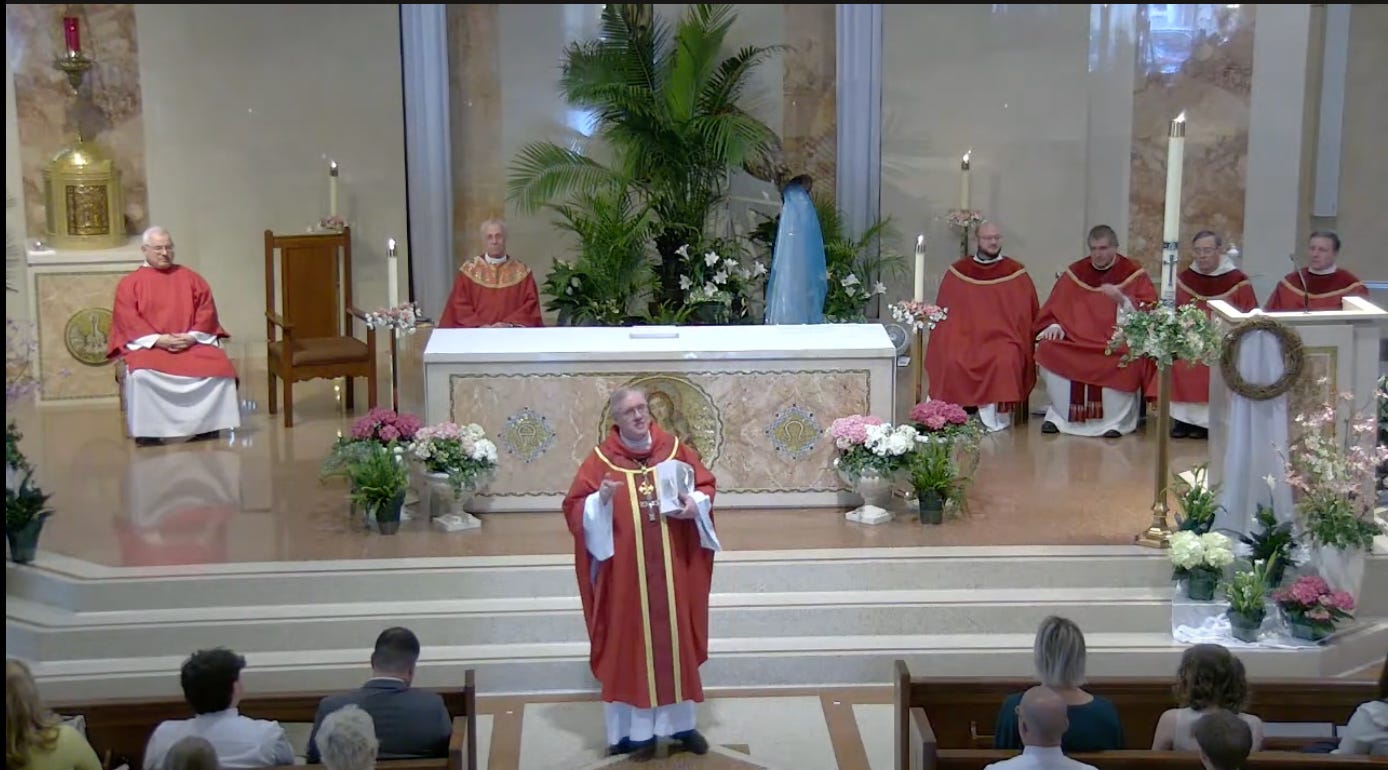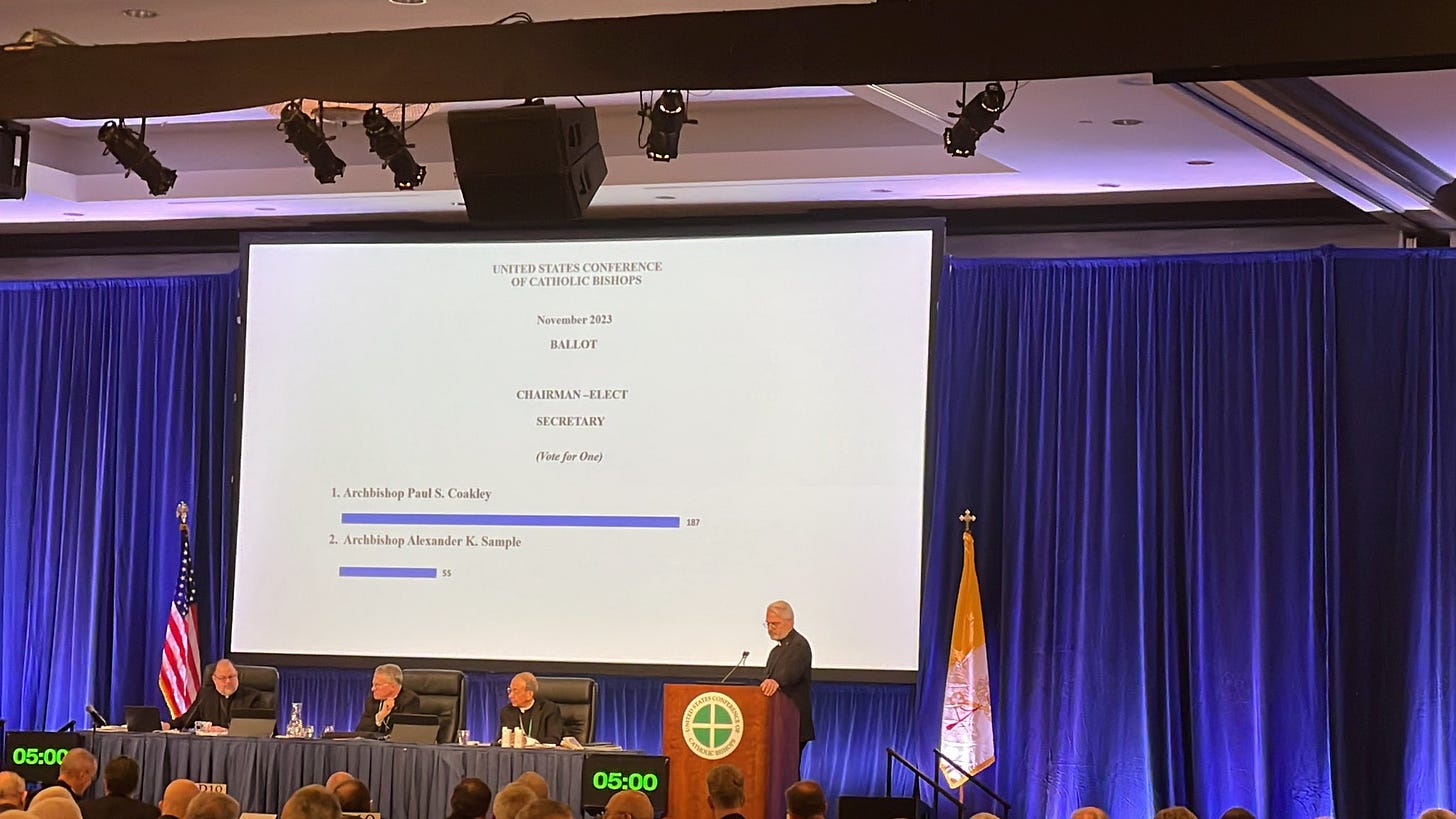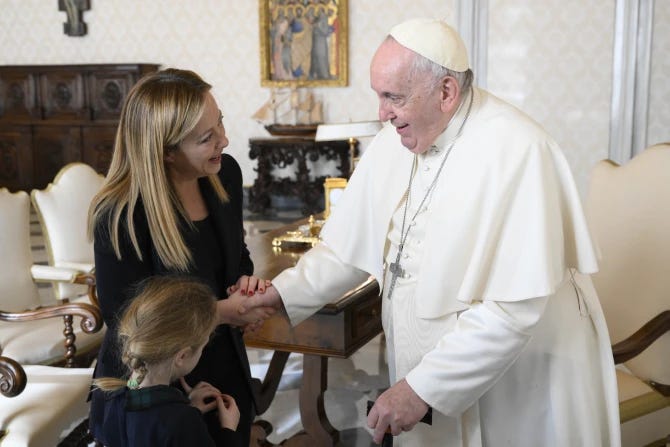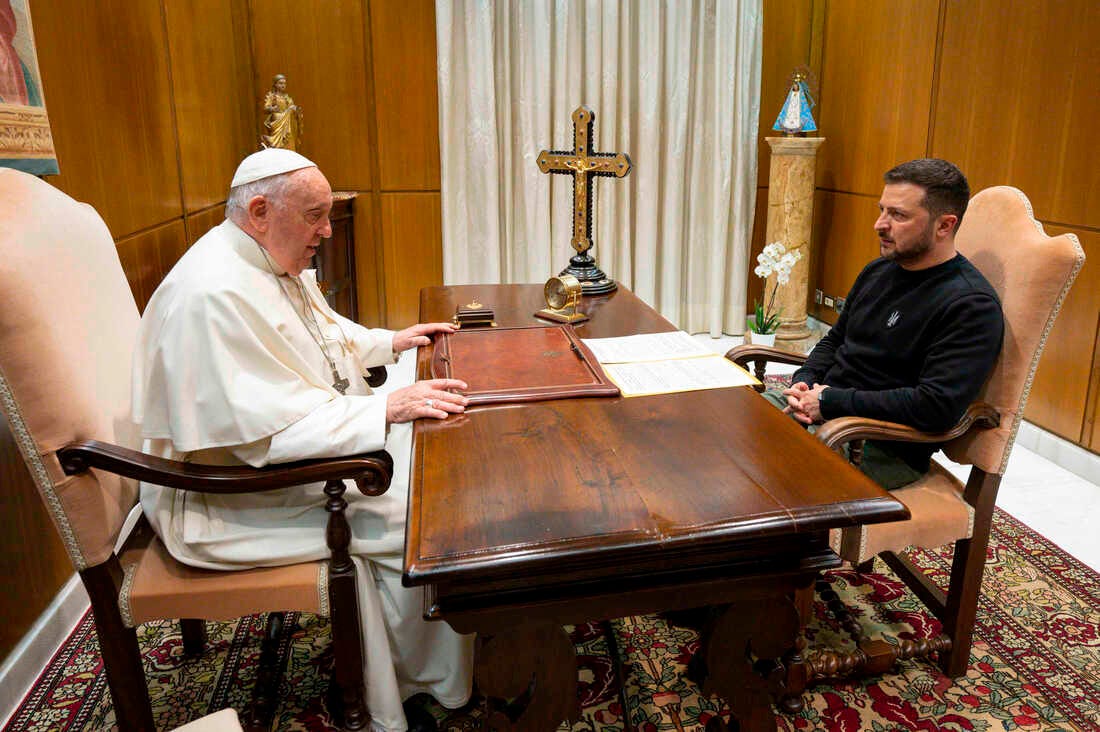It’s election day, everybody, which means that pundits and prognosticators are busy making last-minute predictions about results at the polls.
Here are The Pillar, we didn’t think it would be a good idea to miss out on the excitement. So we present to you our own Election Day prediction extravaganza, giving you predictions for all the November elections we’re tracking from the newsroom.
But these votes won’t be on election day. They’ll be next week, when the U.S. bishops’ conference meets in Baltimore for its annual fall plenary assembly.
Still, it is possible we’ll have results on these much sooner than the federal election is actually decided!
The treasury
The bishops will elect next week a new USCCB treasurer-elect — the candidate selected will spend one year as a kind of understudy to the current conference treasurer, Bishop James Checchio, and will resume his own three-year as treasurer in November 2025.
The candidates are Archbishop Bernard Hebda of St. Paul and Minneapolis, and Bishop David Malloy of Rockford.
JD’s prediction: Hebda
JD says:
Both Bishop Malloy, a former general secretary of the USCCB, and Archbishop Hebda, who steered his archdiocese through bankruptcy, are regarded as competent financial administrators — important, considering the flagging financial condition of the bishops’ conference.
But the conference treasurer sits on the USCCB’s executive committee, and so the candidate’s theological commitments and pastoral sensibilities are also considered an important factor in this election. Hebda is widely-respected among a broad swath of bishops who regard him as pastorally sensible, moderated in his approach, orthodox, and trustworthy.
Malloy will pick up votes from a block of bishops who think Hebda is too theologically conservative, but I think the Minnesota archbishop will pick up the spot.
Ed’s prediction: Hebda
Ed says:
My suspicion is Archbishop Hebda doesn’t actually think he’s in this race at all — but rather he just let his name go forward as a formality. If so, he may be in for quite a surprise come polling day in Baltimore.
Malloy is a perfectly reasonable and entirely credible candidate for an important job at the conference. Absent any other considerations you’d have to like his chances for this.
But there is a quietly strong current of support among many bishops who have been hoping to get Hebda into the conference’s leadership for several years now, and this is their chance.
The archbishop is well liked as much for his known pastoral skills as he is respected for how he adjusted to the financial pressures of walking into a scandal-hit archdiocese and bringing it through bankruptcy.
Whoever talked Hebda into finally letting his name go forward on a ballot knew what they were doing, even if the archbishop himself might not realize it, yet.
The committees
The USCCB’s membership will also vote next week for the chairmen-elect of several conference committees. The selected bishops will spend one year in the role of “chairman elect,” and then begin their three-year terms in 2025.
Clergy, consecrated life, and vocations.
The candidates are Bishop Ron Hicks of Joliet, and Bishop Juan Miguel Betancourt, SEMV, auxiliary of Hartford.
JD’s prediction: Hicks
JD says:
Bishop Betancourt has long experience in seminary formation, in both his native Puerto Rico and in the Archdiocese of St. Paul and Minneapolis. He is widely regarded — by those who know him — as dynamic and orthodox.
But Hicks, who was an auxiliary of Chicago until 2020, is probably more well-known among bishops — and, perhaps surprisingly, is even highly regarded by the swath of the American episcopate critical of Hicks’ former boss in Chicago.
Ed’s prediction: Betancourt
Ed says:
I think this is a dead heat of a race, and either candidate could pip the other. Everything JD says about Hicks is true, but when I am gaming out who might edge out whom in garnering support from the conference floor, I ask myself who their friends are.
In this case, Betancourt’s co-consecrators as bishop were conference president Archbishop Timothy Broglio and conquering hero of the Eucharistic revival Bishop Andrew H. Cozzens. With friends like those, you have to assume it would be enough to break an otherwise theoretical tie.
Divine Worship
The candidates are Archbishop Alex Sample of Portland, and Bishop Michael Woost of Cleveland.
JD’s prediction: Woost, in a tight race.
JD says:
While Woost is not especially well-known, sources who know him say that the bishop’s approach to liturgy is strictly by-the-book — and the book in question is the General Instruction of the Roman Missal.
But when a well-known metropolitan is run against an auxiliary only two years into his episcopate, the race — and the vote — can easily be taken as a referendum on the metropolitan.
And Archbishop Sample is nobody’s idea of a blank slate on liturgy. In fact, Sample’s appreciation for the extraordinary form of the Mass is well-known, and well-documented. Given the liturgical politics surrounding that, Sample will be, no doubt, framed in some circles as an “anti-Francis” candidate.
I don’t think the majority of bishops will buy it.
Still, I do think that a cadre of bishops will vote against Sample because they don’t like his liturgical conservatism, or because they want to signal to Rome that he’s not their kind of candidate.
At same time, I think Woost also will draw a few votes of his own, which are not simply “not-Sample” ballots.
In recent committee elections, the bishops have shown a penchant towards picking moderates, precisely because the conference’s theologically “progressive” minority usually votes together for the moderate candidate, along with a portion of the more conservative majority.
Because of that, this race probably hinges on how many of the more conservative bishops actually choose Woost — knowing that the whole of the “progressive” voting block will vote for him.
With those factors taken together, it’ll be a close one, with Woost having a slight edge for the chairman’s chair.
Ed’s prediction: Sample
Ed says:
I think Sample will win this one for the simple reason of karma. Last year he was up against Archbishop Paul Coakley in the race to be conference secretary, in a match up widely seen as a choice between two well-liked men pretty much equally suited for the job.
In the end it went in a blow-out to Coakley 187-55 in a result that left Sample looking wrongly like he lacked support among his confreres. I expect him to attract a lot of votes from bishops who will want to make it clear it wasn’t personal last time.
Justice and Human Development
The candidates are Archbishop Shelton Fabre of Louisville, and Bishop Kevin Sweeney of Paterson
JD’s prediction: Fabre
JD says:
USCCB elections are often about who you know.
Fabre is a well-known archbishop with a growing public profile, Sweeney’s diocese is actually much bigger than Fabre’s — it has almost double the Catholic population. But with only four years of episcopacy, and with Fabre’s previous service as a conference committee chair, Sweeney seems less likely to draw a majority of votes.
In short, Fabre is not going to draw opposition votes from the “progressive” minority of conference electors, and will draw votes from the “other side of the aisle.”
That’ll be enough to get him elected .
Ed’s prediction: Fabre
Ed says:
To the extent that there is a rising star in the conference these days, I think it is Archbishop Fabre. He’s settled in well in Louisville and was the consummate host for the conference meeting there in June.
He’s also increasingly being talked up as a potential candidate for a bigger archdiocesan appointment, and seems to have the rare combination of support among priests who have served under him, local faithful, his brother bishops, and the apostolic nuncio.
It’s possible Fabre could see a sudden swing against him from corners displeased with his increasing popularity, but with the dust still settling over the collapse of the conference’s Catholic Campaign for Human Development, having someone like Fabre step into the chair at Justice and Human Development feels like the right man at the right time.
Laity, Marriage, Family Life, and Youth
The candidates are Bishop James Conley of Lincoln and Bishop Edward Burns of Dallas
JD’s prediction: Toss-up
JD says:
I should state from the outset my experience here: I worked with or for Bishop James Conley for nine years, and I consider him a good friend. Perhaps that’s why I am reluctant to handicap this race — Whether I predict or not that Conley will win, inevitably some readers will think I’m just trying to spare my friend the headache of chairing a large, important, and sprawling committee, which oversees a lot of offices and staff at the USCCB.
But here’s how I see it:
Bishop Burns is a likable, warm, and competent bishop with experience chairing a tough USCCB committee — child and youth protection.
Bishop Conley is a gregarious, friendly and well-known bishop, who is known to have a big pastoral heart for families and marriage ministry, and he is the author of a well-known pastoral letter on Humanae vitae and family life. Conley is also known to be a big proponent of lay collaboration in ecclesial ministry (that’s a big reason why I worked for him), and he was received favorably a few years back when he was open about taking a mental health sabbatical.
But Conley is also known to love the extraordinary form of the liturgy, and is regarded by some as doctrinally conservative, which will see some bishops vote against him.
Burns doesn’t have the same profile, and, while seemingly doctrinally orthodox, will likely pick up the votes of the theologically “progressive” wing of the bishops’ conference.
For me, that makes the race just too close to call.
Ed’s prediction: Burns, by a hair
Ed says:
Bishop Conley is one of the best-liked and easily likable bishops who could find their name on a ballot. There’s a lot to recommend him — not least his personal and impressive commitment to sensitive issues like mental health, which this committee needs to be able to speak to.
The real downside for Conley in this race may be that he has friends, and everyone knows who they are.
Bishop Burns, on the other hand, is a little bit more of a maverick, which in tight races can be crucial in seeing deciding votes come in from all corners of the conference floor.
Migration
The candidates are Bishop Brendan Cahill of Victoria and Bishop Joseph Tyson of Yakima.
JD’s prediction: Cahill
JD says:
Everybody knows that Bishop Tyson has a special love for migrant workers and their families — and has made their pastoral care a priority in his diocese. Plus, Tyson was already chair of the USCCB cultural diversity committee’s subcommittee on the pastoral care for migrants, refugees and travelers. On paper, he’s probably a shoe-in.
But Tyson has one problem. In the spirit of election day, call that problem “the weave.”
Bishops — left, right, and center — say that he talks too much at meetings, no matter the topic, and even when they’re all itching to get home. It might sound like a small thing, but to bishops, it ain’t. I don’t think the majority of the conference will be keen to hand Bishop Tyson a microphone and a mandate for regular updates and presentations during their meetings.
Ed’s prediction: Tyson
Ed says:
This is a pure instinct pick. Bishop Tyson is something of an interesting character. He’s usually seen as caucusing with the more left-of-center wing of the conference and before the USCCB moved most of the sessions behind closed doors, he was something of a regular at the microphone from the floor.
But he’s not a one-dimensional character by any means. And he can definitely get the bit between his teeth on subjects close to home for him — migration being one of them, for sure.
In the recent fight with the Washington state AG over a bid to subpoena more or less all Church records from the state’s dioceses, Tyson came out of the gate as hard and as strong as anyone in denouncing the AG’s bad faith dealings and constitutional overreach.
The numbers all suggest a Cahill win to me, but my gut says Tyson could be in for an upset win.


